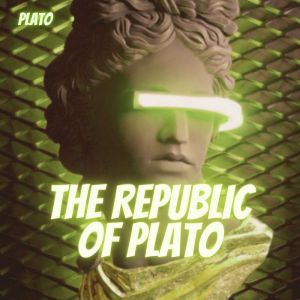

The Republic of Plato
Author: Plato
Narrator: Gregory Elis
Unabridged: 25 hr 5 min
Format: Digital Audiobook Download
Publisher: Surreal
Published: 06/16/2021
Categories: Nonfiction, Architecture, Education, Philosophy


Author: Plato
Narrator: Gregory Elis
Unabridged: 25 hr 5 min
Format: Digital Audiobook Download
Publisher: Surreal
Published: 06/16/2021
Categories: Nonfiction, Architecture, Education, Philosophy
Plato (427-347 B.C.) was a classical Greek philosopher, mathematician, writer, and student of Socrates. Most of his works, which form some of the core foundations of Western philosophy, are written in the form of dialogues, in which Socrates often figures prominently. His best-known writings include the Republic, the Apology, the Symposium, Crito, and Statesman. Plato's work addresses such diverse themes as the nature of love, human knowledge and understanding, and the ideal form of government.
Plato's "The Republic", is a great but flawed masterpiece of western literature, yes it makes sense, mostly, some of it. "I am the wisest man in the world because I know one thing, that I know nothing", said the smart man ... Socrates. Plato is writing for Socrates, his friend and teacher. Late teac......more
My re-reading of this for my university course has led me to the same conclusions I found when I first read it a couple of years back, except this time I am fortunate enough to have understood it better than last time. My conclusions being that Plato, and through him Socrates, was very intelligent,......more
I’ve gotten into the habit of dividing up the books I’ve read by whether I read them before or after Plato’s Republic. Before The Republic, reading was a disorganized activity—much the same as wading through a sea of jumbled thoughts and opinions. I had no basis from which to select books, except by......more
Is the attempt to determine the way of man’s life so small a matter in your eyes—to determine how life may be passed by each one of us to the greatest advantage?(1.344d) I propose therefore that we inquire into the nature of justice and injustice, first as they appear in the State, and secondly i......more
Halfway through now and the ability to see the book as a metaphor for civic and personal moral development becomes difficult. The book is only useful if you are tracking the history of ideas, which I am not. The state Plato describes here is one that is highly prohibitive in almost every aspect. Art......more